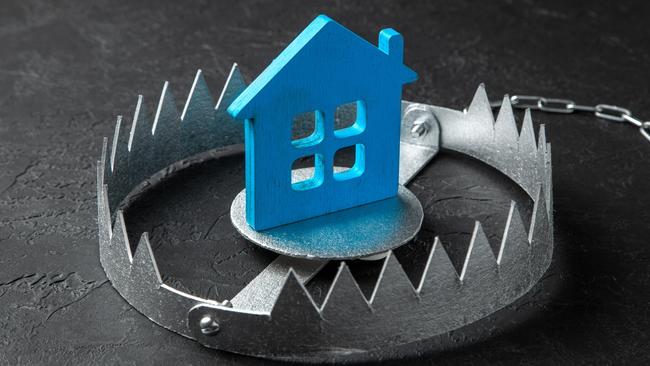Real estate tax traps hurt more than just investors
Real estate tax traps sting more than just investors, so it’s wise to know how to avoid getting hit by a big ATO bill. Here are five tax mistakes that can strike property owners.
Property
Don't miss out on the headlines from Property. Followed categories will be added to My News.
Tax time ends soon for millions of Australians, and many of the nation’s 2.2 million real estate investors have secured bigger refunds because of soaring mortgage interest rates.
Others have extended tax return deadlines through accountants, but tax issues impact more than just investors.
Whether you have an investment property, holiday home, second home or simply your own home, tax mistakes can cost thousands of dollars, so it pays to have some knowledge.
Here are five tax traps that can strike property owners.
INTEREST ERRORS
The ATO is closely watching property investors this year after finding that nine out of 10 are getting their tax returns wrong, and it says the biggest mistakes are made with interest payments.
People can only claim interest on a loan on a property earning rental income, and if part of the loan is private or refinanced for private expenses, that portion is not deductible. The ATO this year extended its data matching technology to residential investment property loans and is says this delivers “crucial intelligence”.
RENTING ROOMS OR HOLIDAY HOMES
If you lease part or all of your home or holiday home on a platform such as Airbnb, remember that the income must be declared and tax deductions only apply to the portion and time it is used to produce rental income.
Capital gains tax can hurt too. If part of your place was used to earn rental income, CGT can apply to that portion.

FAILING TO DEPRECIATE
Depreciation and capital works deductions can deliver thousands of dollars of extra cash each year but many property investors do not make them, or do not maximise them.
While the depreciation of fixtures and fittings only applies to new properties, capital works claims – a deduction for the bricks and mortar cost of an investment property usually at 2.5 per cent a year over 40 years – are allowable for most investors and deliver a windfall for those who make them.
A professional depreciation report may cost $600-$800 but will show exactly what you can claim, and is tax-deductible itself.
LAND TAX TIMING
Land tax is a state tax generally imposed on properties other than the family home, which is exempt, so it hits investors hardest.
But it also can unnecessarily hurt owner-occupiers or people selling a second home or holiday home.
Land tax costs, thresholds and the dates on which landholdings are assessed (typically June 30 or December 31) vary between states, and the tax multiplies the more property you own.
A timing trap arises when anyone is selling one property and buying another, but inadvertently holds both properties at the assessment date – which rockets their land tax bill higher.
BAD TIME TO SELL
Timing is also a trap when it comes to capital gains tax, or receiving a large amount of money from a redundancy payment or asset sale.
Selling an investment property or holiday home in the same financial year that you receive another financial windfall can dramatically increase CGT, by adding tens or hundreds of thousands of dollars to existing taxable income and pushing you into the 47 per cent top tax bracket.
Originally published as Real estate tax traps hurt more than just investors





